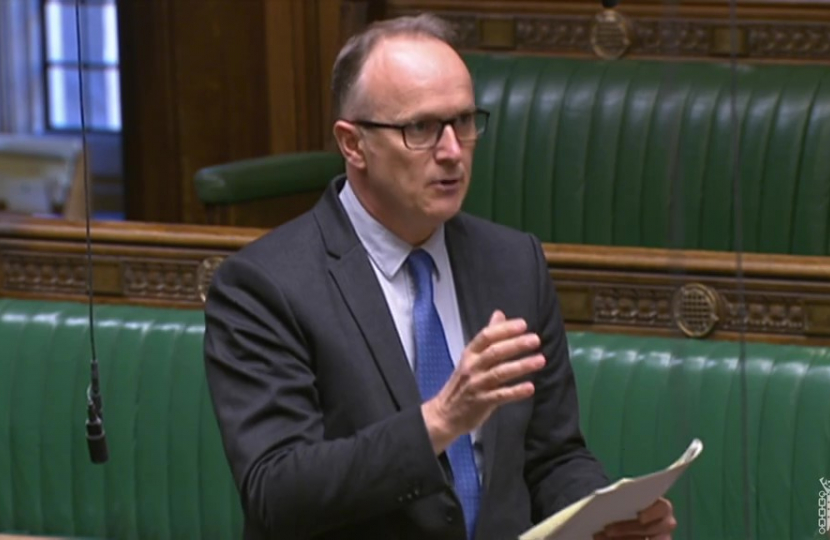
Link to report:
An official EFRA Committee parliamentary inquiry instigated by Dr Neil Hudson, MP for Penrith and The Border, and published today has concluded that people in rural areas disproportionately suffer from unique mental health challenges without suitable access to care.
The MPs expressed deep concern about how isolation, poor public transport and a relative lack of digital connectivity have contributed to poor mental health outcomes for all categories of people across rural communities in England, but especially among farm workers and vets.
A report by the cross-party Environment, Food and Rural Affairs Committee calls for far greater joined-up planning and action from the government to address the issue.
The study says relative poverty in rural areas can exacerbate poor mental wellbeing and that rural workers including farmers face particular stresses, including unpredictable weather and animal health crises, as well as changing and uncertain government policies which can affect their incomes as well as their mental health.
Dr Neil Hudson, MP for Penrith and The Border and veterinary surgeon, said:
“Rural communities face a combination of pressure factors that challenge mental health from isolation, poor transport links, poor virtual connectivity and events such as animal disease outbreaks and extreme weather events. In addition chronic intermittent stresses such as the anxiety of TB testing place huge pressure on people working in the agricultural sector.
“In 2001 as a vet, I witnessed the devastation of the Foot and Mouth Outbreak, having to supervise culls on farms. Rural Communities were then left with that trauma legacy and they experience this again in crises like Avian Influenza and flooding.
“We have produced an important cross party EFRA report and it has been a long-fought personal campaign of mine to shine a light on this underreported issue. Tragically I know from my own profession just how over-represented rural sectors are in mental health and suicide statistics and so I’ve spoken up consistently since my maiden speech for Government to make more support available.
“We’ve set forward a number of positive and proactive recommendations for DEFRA to lead across Government to implement, such as providing accessible mental health first aid support in rural work settings, and I look forward to continue strengthening such a pivotal Government Department in our future inquiries.”
Vets, who regularly deal with animal mortality, epidemics and disturbing situations around TB testing, are especially affected by stress. A survey in 2018 of British Veterinary Association members found that 77% of those surveyed had been concerned about a colleague or fellow student’s mental health and wellbeing.
The report emphasises that the available picture of rural mental health across England is incomplete, partly due to gaps in data and partly due to under-reporting across government of rural deprivation, which is inextricably linked to poor mental well-being. This lack of detailed data, the Committee report says, should be addressed across all the areas where it makes recommendations for meaningful action.
However, the report says the data deficiency cannot hide a clear pattern where rural communities’ needs are not fully reflected in the mental health planning and services provided by the Department for Health and Social Care (DHSC).
The report highlights evidence which indicates that agricultural and veterinary workers have a higher-than-average suicide rate when compared to the broader population. However, there is an incomplete picture because of gaps in the data and a fuller understanding of suicide in relation to these occupational groups is needed.
The Chair of the Environment, Food and Rural Affairs Committee, Sir Robert Goodwill MP said:
“Rural communities face a unique set of challenges. High on the list are limited access to mental health services, poor public transport and unpredictable crises like animal diseases.
“All this has an inevitable toll on peoples’ mental health – and yet the mental health services people in rural areas can access are few and far between
“Rural mental health needs to be a top priority for Defra – and the Department should take the lead on this report’s recommendations for much more joined-up action across government.”
Some of the key recommendations from the report are that:
· Defra and DHSC should establish a new joint rural mental health policy and delivery team to improve access to and outcomes for rural mental health services;
· Defra should take a more active role in national suicide prevention policy, with agricultural and veterinary workers being recognized as high priorities for action, and UK Government funding for local authority suicide prevention work needs to be ringfenced;
· The government should relieve intense pressure on the delivery of NHS Child and Adolescent Mental Health Services (CAMHS) by expanding preventive mental health support into all schools and colleges in rural areas, and by supporting Early Support Hubs;
· Defra and DHSC should upgrade local preparedness for the mental health impacts of extreme events such as flooding and animal health crises;
· The Government should fund and roll out mental health first aid training aimed at creating a critical mass of front-line personnel dealing with farmers and those working and living in rural industries and areas;
· Defra should explore how farm workers and vets could take more time off work when they need it – by for example encouraging sickness insurance schemes; and
· Defra, DHSC, the NHS and the Department for Transport should set out rural transport policies that provide rural communities with access to health services that is as good as the access urban communities enjoy.



